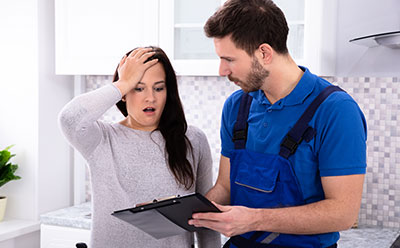Swim into Safety this Summer
For many Texas families, a sparkling swimming pool is the perfect backyard feature to counter summer’s sizzling heat — while having some family fun, too. But how does one keep everyone safe?
.jpg?sfvrsn=a91b2a8_4)
Yes, although backyard pools can provide soothing respite from soaring temperatures, they can also be dangerous, especially for young children.
For instance, did you know that drowning is the leading cause of death1 in children ages 1 to 4 years? Or that 80% of children treated in emergency departments for non-fatal pool or spa-related injuries were five years or younger?2
By following the right safety measures, however, you can have fun in your backyard pool and still be safe this summer. Here are eight tips to help you maximize your swimming pool safety.
Make access to water difficult
Kids often can’t wait to jump into the water and very young children in particular are drawn to it — but make sure that access to a backyard swimming pool is under the watchful eyes of adults. Barriers that allow adults to control access are key.
To keep children safe, Texas law states that all pools must be enclosed3 with a non-climbable fence that is at least 48 inches tall and has gates that both self-close and self-latch.
In addition to these regulations, pool owners should consider having an alarm on a pool gate. A gate alarm means that you are immediately notified — even at a distance, if your pool gate is not secured. You might even consider having a pool alarm that notifies you when the water’s surface is broken, so that you can respond immediately.
Designate a "water watcher"
We all know that children should never be left unattended in or near water. But, assuming that everyone is watching means no one is watching.4
Unlike what is often portrayed in media, drowning can happen silently and quickly. Rarely is a person in distress thrashing in the water or yelling for help.
Having an adult designated as the Water Watcher is one way to ensure that someone always has eyes on the pool. The designated individual should refrain from distractions (including reading or using their phone). A waterproof badge can be helpful to remind others that the watcher is "on duty" and shouldn’t be distracted.
Restrict diving
According to the American Red Cross, most diving injuries happen in water that is five feet deep or less. Only swimming pools that have a marked depth of at least 9 feet are considered safe for a head-first dive.
If you decide that diving is allowed, make sure that swimmers understand the pool’s designated diving area. Swimmers should only dive in the diving zone, steer clear of the area when someone is preparing to dive and refrain from diving at night or when there are obstructions in the water (e.g., floats or other swimmers).
Prioritize swimming lessons
Learning how to swim5 is perhaps one of the most important life skills to acquire. Unfortunately, roughly 1 in 5 Americans do not know how to swim, and fewer than half of Americans can swim well enough to save themselves from drowning.6
When parents and children learn critical, age-appropriate water safety skills not only will they be more comfortable in the water but also they will know the basic skills needed to minimize the risks of accidental drowning. The American Red Cross lists five water competencies7 including the ability to step or jump into water over the swimmer’s head or to float or tread water for one minute.
And, while you might be surprised that your little one seems like a “fish in water,” learning how to swim doesn’t mean children should swim without adult supervision. (In fact, a young child drowned while at a group swimming lesson in San Antonio in 2018, and his family now champions8 safer standards for early childhood group swim instruction.)
Check the pool first
Remember, when it comes to a potential drowning, time is of the essence. If you realize a child is missing, immediately go to the swimming pool to make sure that they haven’t fallen accidentally into the water.
Learn first-aid skills
If you spot a drowning swimmer, call 911 immediately. While waiting for emergency responders, CPR and mouth-to-mouth resuscitation9 are emergency procedures that can save a life if a person’s breathing or heart stops.
Fortunately, CPR training is readily available, and it is a skill you’ll remember for the rest of your life. The American Heart Association10 can help you find CPR and other first aid classes near you.
Maintain your pool
If you own a backyard pool, you’re responsible for maintaining it and the surrounding areas. Unfortunately, seemingly small problems can quickly become larger safety issues if not addressed.
The following basic pool maintenance tasks can help minimize risks:
- Frequently inspect areas that get a lot of usage, such as handrails and ladders, to make sure they are secure and are structurally sound.
- Inspect drain covers to make sure they are secure and attached properly.
- Pay particular attention to your pool deck. If it is made of stone, look for any stones that are loose and might be uneven. If you have a wooden deck, keep an eye out and fix any loose boards or nails that might be protruding due to weathering or age.
- Consider scheduling annual inspections of your swimming pool by a pool specialist to ensure that the mechanical elements of your pool are in proper working order.
Take care with chemicals
Most swimming pools are maintained11 through the use of chemicals that disinfect the water and protect swimmers from the spread of germs, contaminants and algae growth.
Yet some of those useful chemicals can be deadly, making safety around their use and storage essential.
Keep all chemicals in a secured area so that young children will not have access to them. Make sure that the protected area will also prevent chemicals from getting wet and will not leak, spill or mix with other substances such as lawn fertilizers.
While it can sometimes seem challenging to get the swimming pool chemically balanced, pool owners need to make sure that they are following the instructions for usage of all the chemicals they use in their pool.
The takeaway
Swimming is a fun way to stay cool during the summer. But remember: Safety should be a priority.
It’s also important to make sure that your homeowners insurance policy is sufficient to cover issues that may crop up or accidents that may occur.
RBFCU Insurance Agency is available to conduct a review of your policy, or you can request an online quote today.

.jpg?sfvrsn=6562b4a8_4)



.jpg?sfvrsn=ef91b2a8_4)